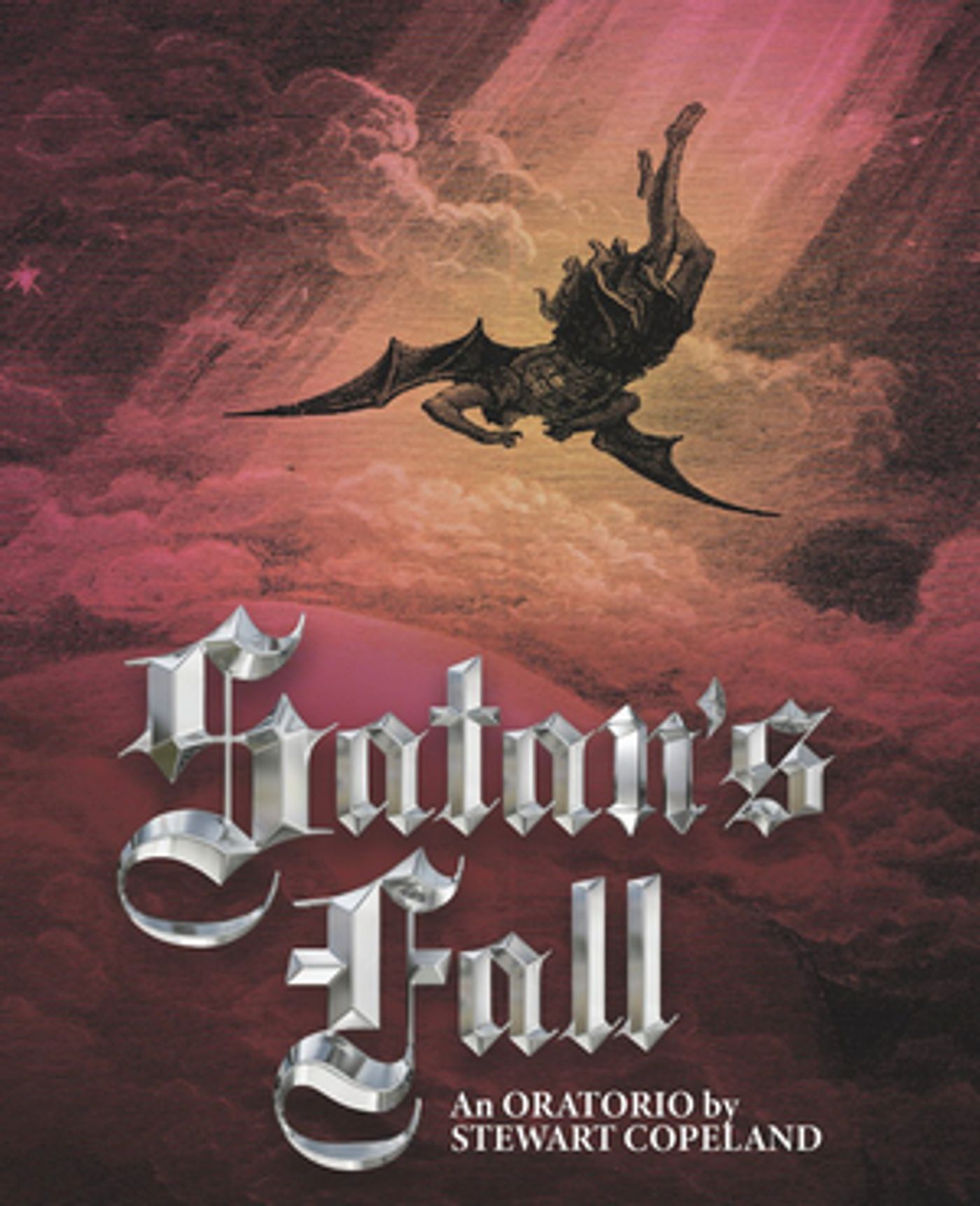Pepperdine Hosts West Coast Premiere Of Stewart Copeland's New Oratorio
The performance is on Saturday, April 23, 2022 at 8 p.m.

GRAMMY Award-winning founding member of the rock group the Police Stewart Copeland will host the West Coast premiere of his original oratorio Satan's Fall at Pepperdine University's Smothers Theatre in Malibu on Saturday, April 23, 2022 at 8 p.m.
Tickets, priced starting at $20 for adults and $10 for full-time Pepperdine students, are available now by calling (310) 506-4522 or visiting the event page.
Pepperdine University presents a new, commissioned work by rock drummer/founder of the Police and seasoned composer in film, opera, ballet, and orchestral music, Stewart Copeland. Written for chorus and rock orchestra, Satan's Fall delves into the title character's darkness, insurrection, and eventual fall from grace as conceived by John Milton in Books V and VI of Paradise Lost.
Satan's Fall features guest soprano Jamie Chamberlin as Raphaella, guest tenor Scott Wichael as Raphael, Assistant Professor of Vocal Studies and Director of Opera Keith Colclough as God, and Adjunct Professor of Music Ida Nicolosi as Messiah. The production also features Seaver College students Jack Gerding as Satan, John Silva as Abdiel, Jace Vendelin as Belial, and Sakeenah Godfrey as Zophiel.
Satan's Fall Background
In 2019, the Pepperdine choral program joined a distinct group of choral organizations from across the US and Europe in order to commission the composition of a new oratorio by rock drumming legend Stewart Copeland. The team includes the Mendelssohn Choir of Pittsburgh, the Minnesota Oratorio Society, Vocal Essence, Trinity Church Wall Street of New York, Montclair State University of New Jersey, the Huddersfield Choral Society in the UK and Pepperdine University. Pepperdine will present the West Coast premiere of Satan's Fall.
Stewart Copeland chose Milton's Paradise Lost as primary inspiration; from Milton's nearly 100,000-word epic, Copeland selected roughly 15,000-from Books V and VI-in order to tell the story of the clash between God, the Messiah, and Satan in a 40-minute musical work entitled Satan's Fall. Copeland sets his selected text to music performed by mostly classical instruments, soloists and a choir, but the style is anything but traditional. His composition is expectedly rhythmic, edgy, and blends styles as diverse as jazz and death metal.
In order to expand the scope and impact of the project, a team of professors from seven different programs at Seaver College applied for support from Pepperdine's Cross-School Collaborative Research Grant. With this support, the project now includes collaboration from students and faculty in art, art history, great books, music, poetry, and religion. Students have created original poetic works, essays, screen plays, and visual art, and have engaged in discussions, lectures, and rehearsals, all of which leads up to our culminating events on the weekend of April 23. These include curated mobile art truck exhibits and other exhibits and lectures to be announced, as well as the performance of Satan's Fall on Saturday, April 23.
The concert will include additional music performed by Pepperdine's Pickford Ensemble and the Pepperdine Concert and Chamber Choirs. Much of the first half of the program will focus on themes of heaven, angels, and paradise; the second half depicts the "fall" from grace and Satan's plunge into hell. A jam-packed and brisk 90 minutes, the full program includes both the classical and the contemporary.
"In the vast 17th century epic of John Milton's Paradise Lost, there lives a story within the story," says Copeland. "It concerns the essential prequel to the sacred tale: Why did Satan do it? How and why does Almighty God have an adversary? We get an answer when we learn of Satan's journey to the dark side and of the mighty battle that cast him out of heaven. Such a story must be told with a heavenly choir!"
John Milton's Paradise Lost, published in 1667, is a poem that draws from Genesis 1-3 to tell the story of the Fall of Man: the temptation of Adam and Eve by the fallen angel Satan and their expulsion from the Garden of Eden. Milton states his thesis in Book 1: to assert Eternal Providence and justify the ways of God to men. Over 350 years later, the poem continues to shape the modern Western imagination.
Within the 10,000 lines that comprise the poem, Satan describes his internal and external hell:
The mind is its own place, and in itself can make a Heaven of Hell, a Hell of Heaven Better to reign in Hell than to serve in Heaven
Which way I fly is Hell; myself am Hell
In this way, Milton helps the reader penetrate Satan's tormented mind.
In a modern revisiting of the story of the garden of Eden, Stewart Copeland's rock opera, Satan's Fall, highlights the role of Satan as one who brings about two falls: his own and that of Adam and Eve. Like Milton, Copeland provides an interpretation that speaks to modern culture, particularly the last half century of global pop/contemporary music-a musical form that often shapes our understanding of what is good, true, and beautiful.
"The students have enjoyed collaborating with a rock legend, and have valued the educational dive into Milton's influence on centuries of art, music, and perceptions of heaven and hell," Ryan Board, Pepperdine Chamber Choir Director, said.

Videos
